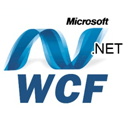
Web services and WCF Training helps in developing service oriented applications. A web service is an application which is accessed through protocols like SOAP. A Windows Communication Foundation (WCF) provides secured service oriented applications, secured and reliable web service, secured connection to remote applications and is independent of platform used for integration. WCF needs .NET Framework to build and run the services and it supports a wide range of standards like XML, XSD, XPath, WSDL etc.
In Web services and WCF Training course, we, at Deccansoft teach you how to develop service oriented applications with lot of examples, which makes you understand how two different applications can share the information. Web services and WCF Training course provides good knowledge on service oriented applications and also how the WCF has evolved over web service. Web services are still in use by some companies. So our Web Service Training will help you in attaining knowledge to work on service oriented applications which are still in development.
If you are looking for an institute which can give you the best Web service and WCF services training then Deccansoft could be your destination. We have the best trained, highly experienced faculty, guiding students over years. Fine training methods, along with step wise practical explanations, are followed for the students to gain total grip on the technology. Course material is given which cover all the topics along with step wise execution and examples. Well resourced lab is open for the students for about 12 hours to practice, and with faculty to assist.
At the end of WCF Training course, students will be able to:
Routing Overview
WCF Data Service Overview
REST Services Overview